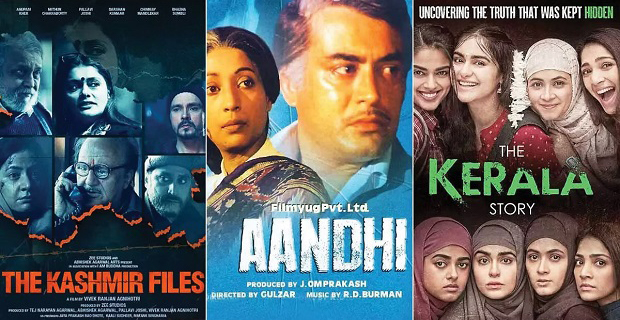THE BAN CULTURE IS GOOD
The ban culture and the jail culture have always existed in India. The British did it and so did the post-independence rulers. The first prime minister of India did it and the rest of the family, which ruled the country, followed suit.
Jailing a person was the privilege of the rulers, the one enjoying the high office of the prime minister. It had nothing to do with the excuses that are offered now, such as: disturbing harmony, spreading unrest, hurting religious sentiments, and so on. Books, talks and creativity were banned randomly.
In between, the trend was to jail people. It had nothing to do with public perceptions, but all about the undemocratic way of running a democratic country. Things have changed and the politicians don’t muddy their hands by directly giving calls to ban a book or a film. Why do they need to do that? There are so many ambitious, albeit undeserving, folks wanting to grab the limelight, earn fame by creating a nuisance value with the ultimate aim to create a following and a career in politics.
The politicians’ hobby of jailing even the biggest of names never aroused any anger or reactions from people. They hardly came to know about the arrests. Say, in the case of Majrooh Sultanpuri, who was jailed for a year because of his comments against the PM of that time. The PM had no patience for criticism and not only went on a banning spree, but also brought in the first amendment to the Constitution, limiting the freedom of speech and expression.
In the mid-1970s, when the Emergency was in force, the film ‘Aandhi’ was banned because the prime minister at that time thought the film aimed to show her in a bad light! Amrit Nahata’s film, ‘Kissa Kursi Kaa’, was not only banned, even its negatives were consigned to fire! Nahata was a two-term Congress Member of Parliament, but that did not help him or his film. The film was remade. A very poorly made political satire, it bombed badly at the box office.
‘Aandhi’, when released, turned out to be the story of a woman driven by her ambitious politician father to make a career in politics at the cost of her marriage. The film did well, thanks to powerful performances by Sanjeev Kumar and Suchitra Sen, and the musical score that reverberates even today.
Films and filmmakers were fair game. Censor Board folks thought they had read the intentions of the Government and they closely scrutinised just about every film and suggested innumerable cuts. Intimate scenes between the lead stars were taboo; so were action scenes in the land of the Mahabharata and Ramayana!
Film folk felt so harassed and humiliated that post emergency, matinee idol Dev Anand decided to float a political party to contest the elections against the ruling party! But film people normally are the ‘forget it and move on’ kind. The idea died soon as it was conceived.
This was the time when it did not need a despotic politician or a party to ban films. The Censor Board did the bidding of their political master. The members were more-loyal-than-the-king types.











Comments.